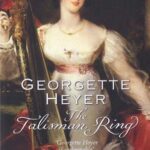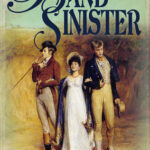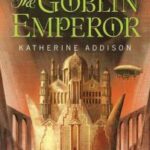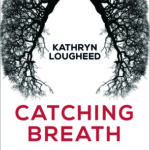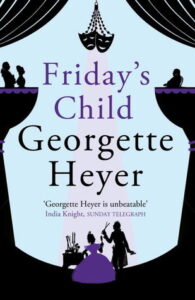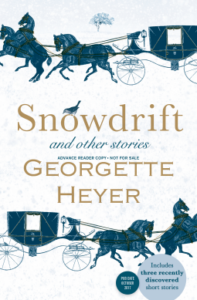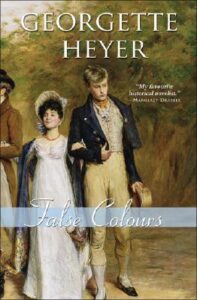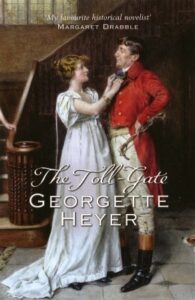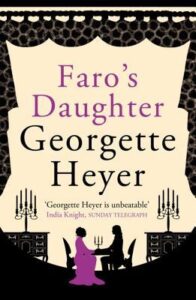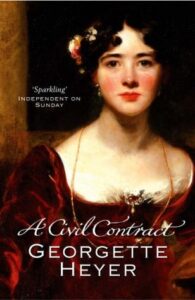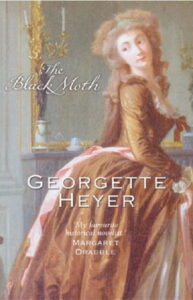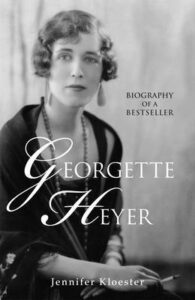Tuesday again already! And this week’s Top Ten Tuesday theme is “books that make me smile”. Which is… honestly, most books. Just being around books makes me smile — even books I personally wouldn’t enjoy, it can be really exciting to look at someone else’s books, or browse through a shelf… But there are some specific books that put a smile on my face for various reasons, so let’s do this!
- The Talisman Ring, by Georgette Heyer. Most Heyer novels have me giggling throughout, but this was one of the first I read, and the reread was just as good. The Reluctant Widow, too. She has some annoying heroes and some repetitive plots/themes… but in general, I’m always going to smile at a Heyer novel.
- Band Sinister, by K.J. Charles. Most K.J. Charles books would fit the bill actually… but Band Sinister is one of the rare ones that doesn’t also have a massive bodycount, so it’s the one that fits most readily on a list about smiling! Though A Fashionable Indulgence is also worth mentioning. And A Gentleman’s Position. Ugh, no, they all make me smile.
- Have His Carcase, by Dorothy L. Sayers. From the opening paragraph onwards, there’s so much cleverness and wit. And it features two of my favourite characters in fiction, Lord Peter Wimsey and Harriet Vane. How could I not smile? Also, memories of the radioplays and BBC TV adaptations, and so many good conversations with my mum and my wife…
- The Goblin Emperor, by Katherine Addison. Alright, not all of it is happy or comfortable reading, but Maia is a delight and so are many of the characters who surround him. I’m trying not to reread it too often, but honestly, when I’m stressed it’s the first thing that comes to mind.
- Small Robots, by Thomas Heasman-Hunt. There’s a Small Robot for almost every occasion, and they’re so often so cute… or so apt for the moment. Check out their Twitter!
- The Natural History of Dragons, by Marie Brennan. The series has been so much fun, and the accompanying art (including on the cover) is so good. Isabella and her deranged practicality really stick with me.
- The Hundred Thousand Kingdoms, by N.K. Jemisin. I can’t help remembering being sucked in and just ZOOMING through it, whenever I see this book! And so many great conversations about it, and just… yeah.
- Catching Breath, by Kathryn Lougheed. One of the many books about disease (like The Emperor of All Maladies, or Spillover) that a) helped me get over irrational fear through fostering curiosity instead, and b) really set me on my current path when it comes to studying. Of course I smile when I think about this one! There’s so much out there to learn, and I never have to stop. Plus, I wrote my dissertation on TB basically because of this book. I know a lot of people hate their dissertations by the end, but I did not; I’d gladly research and write several more chapters!
- This Is Kind of an Epic Love Story, by Kacen Callender. I haven’t actually read this yet, but it looks like fun and I’m really excited to finally get through my TBR pile to it. (Not that I am reading a set number of books before I pick it up, just that my brain is like a very crowded train station, and This Is Kind of an Epic Love Story has not — yet — managed to get on the attention-trains zooming through.)
- Red, White and Royal Blue, by Casey McQuiston. Ditto the above! It looks and sounds so cute, aaahh.
I’ll be interested to see what books make other folks smile — and hopefully why! Leave me your links if you’ve done this TTT as well!

